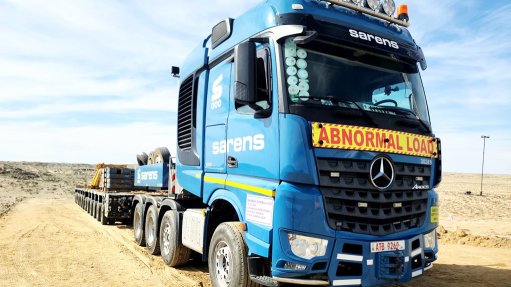Our dangerous cities
Initiatives such as government’s push against gender-based violence – which culminated in the launch, about a fortnight ago, of a fund to tackle this scourge – are clearly indicative of the overall state of safety and security in our country’s towns and cities, which are home to 66.86% of the population.
Indeed, Mzansi’s urban areas are among the most crime ridden in the world. This is according to the latest crime index from Numbeo – a provider of quality-of-life information – which ranks Pretoria the world’s third-unsafest city, not far behind the global crime capital of Caracas, in Venezuela, and Port Moresby, in Papua New Guinea.
The index, which was based on a survey of 94 000 people and deals with the respondents’ levels of fear of violent crimes, their property being stolen, hate crimes based on ethnicity or religion and corruption and bribery, ranks five other South African cities among the 20 most dangerous globally. These are Durban and Johannesburg, in fourth and fifth positions respectively, as well as Pietermaritzburg (seventh), Port Elizabeth (fourteenth) and Cape Town (nineteenth).
Only Brazil had as many cities in the top 20, namely Natal (eighth), Fortaleza (ninth), Rio de Janeiro (tenth), Recife (eleventh), Salvador (thirteenth) and Porto Alegre (fifteenth). Besides South Africa and Brazil, only the US had more than one city mentioned among the 20 most dangerous cities in the world, these being Memphis, in the state of Tennessee, which ranked seventeenth, Baltimore, in the state of Maryland, which ranked eighteenth, and Detroit, in the state of Michigan, which rounded out the top 20.
The other top 20 cities on the latest Numbeo crime index are Honduras’ San Pedro Sula (sixth), Afghanistan’s Kabul (twelfth) and Trinidad and Tobago’s Port of Spain (sixteenth).
At country level, South Africa is ranked the third most dangerous country in the world – the same level as in 2020 and behind only Venezuela and Papua New Guinea. This means Mzansi ranks ahead of war-ravaged countries such as Afghanistan, which ranked fourth, and Syria (ninth), as well as Honduras, which ranked fifth, despite its dubious honour as the world’s murder capital, with an intentional homicide rate of more 160 per 100 000 inhabitants.
The most worrying crime among dwellers of the South African cities included in the survey is ‘bribery and corruption’, followed by ‘assault and robbery’, and ‘property crimes’ like theft.
The overall perception of the South African respondents who took part in the Numbeo survey is that crime in this country has been increasing over the past three years, which is in line with the findings of local studies, including the Victims of Crime survey conducted by Statistics South Africa.
At the other end of the rankings, Abu Dhabi, in the United Arab Emirates (UAE), clinched the number one spot, with two other cities in the UAE, Sharjah (sixth) and Dubai (seventh), also featuring on the list of the world’s ten safest cities.
This is the fifth consecutive year that Abu Dhabi has received the ‘safest city’ accolade in the Numbeo survey. The city has achieved similar success in comparable recent surveys, being named, for example, in the top ten of the InterNations Expat City Ranking survey in 2020. Commentators put such success down to Abu Dhabi’s low crime rate, proactive community policing polices and comparatively low levels of poverty.
So, do I see South African cities in the same league as Abu Dhabi any time soon as far as safety goes? Not until our poverty levels are significantly lower and our approach to policing is overhauled. This means the South African government at large and the likes of General Bheki Cele, the Police Minister, have a lot of homework to do.
Article Enquiry
Email Article
Save Article
Feedback
To advertise email advertising@creamermedia.co.za or click here
Announcements
What's On
Subscribe to improve your user experience...
Option 1 (equivalent of R125 a month):
Receive a weekly copy of Creamer Media's Engineering News & Mining Weekly magazine
(print copy for those in South Africa and e-magazine for those outside of South Africa)
Receive daily email newsletters
Access to full search results
Access archive of magazine back copies
Access to Projects in Progress
Access to ONE Research Report of your choice in PDF format
Option 2 (equivalent of R375 a month):
All benefits from Option 1
PLUS
Access to Creamer Media's Research Channel Africa for ALL Research Reports, in PDF format, on various industrial and mining sectors
including Electricity; Water; Energy Transition; Hydrogen; Roads, Rail and Ports; Coal; Gold; Platinum; Battery Metals; etc.
Already a subscriber?
Forgotten your password?
Receive weekly copy of Creamer Media's Engineering News & Mining Weekly magazine (print copy for those in South Africa and e-magazine for those outside of South Africa)
➕
Recieve daily email newsletters
➕
Access to full search results
➕
Access archive of magazine back copies
➕
Access to Projects in Progress
➕
Access to ONE Research Report of your choice in PDF format
RESEARCH CHANNEL AFRICA
R4500 (equivalent of R375 a month)
SUBSCRIBEAll benefits from Option 1
➕
Access to Creamer Media's Research Channel Africa for ALL Research Reports on various industrial and mining sectors, in PDF format, including on:
Electricity
➕
Water
➕
Energy Transition
➕
Hydrogen
➕
Roads, Rail and Ports
➕
Coal
➕
Gold
➕
Platinum
➕
Battery Metals
➕
etc.
Receive all benefits from Option 1 or Option 2 delivered to numerous people at your company
➕
Multiple User names and Passwords for simultaneous log-ins
➕
Intranet integration access to all in your organisation

















